French Bulldogs, fondly referred to as “Frenchies,” are globally adored for their compact size, distinctive bat-like ears, and delightful temperament, making them a beloved choice among dog enthusiasts. Understanding the average French Bulldog weight is crucial for ensuring their optimal health and happiness throughout their lives. By monitoring their weight, managing their diet, and addressing potential health concerns proactively, owners can ensure that their cherished companions thrive. This comprehensive guide offers valuable insights and practical advice tailored for Frenchie owners striving to maintain their furry friends in peak condition.

Comprehensive Guide to French Bulldog Growth and Average Weight For French Bulldog
Understanding the growth stages and weight expectations of French Bulldogs is essential for ensuring they develop healthily and maintain a healthy weight throughout their lives. Below is a table outlining the average French Bulldog weight expectations based on age and gender:
| Age | Weight (Male) | Weight (Female) |
| 1 month | 4 – 7 lbs | 3 – 6 lbs |
| 2 months | 9 – 12 lbs | 7 – 10 lbs |
| 3 months | 10 – 14 lbs | 8 – 12 lbs |
| 4 months | 12 – 16 lbs | 10 – 15 lbs |
| 5 months | 15 – 20 lbs | 11 – 17 lbs |
| 6 months | 17 – 22 lbs | 13 – 20 lbs |
| 7 months | 18 – 25 lbs | 14 – 21 lbs |
| 8 months | 19 – 27 lbs | 15 – 22 lbs |
| 9 months | 20 – 28 lbs | 16 – 22 lbs |
| 10 months | 20 – 28 lbs | 17 – 24 lbs |
| 11 months | 20 – 28 lbs | 17 – 24 lbs |
| 1 year | 20 – 28 lbs | 17 – 24 lbs |
| 12 -18 months (adult weight) | 20-28 lbs | 17-26 lbs |

Weight Expectations for Puppies (0-6 Months)
During their initial six months, French Bulldog puppies undergo rapid growth. They usually weigh approximately 1 pound at birth and can reach between 17 to 20 pounds by six months of age. Monitoring their weight during this developmental phase is crucial for ensuring they achieve the average French Bulldog weight and grow healthily.
Weight Expectations for Adolescents (6-12 Months)
From six to twelve months, French Bulldogs continue to grow but at a slower pace. By their first birthday, they should be nearing their adult weight, which ranges from 17 to 28 pounds depending on their sex. Regular veterinary check-ups can help monitor their growth and development.
Weight Expectations for Adults (1 Year and Older)
Once your Frenchie reaches one year old, their weight should stabilize. Adult males typically weigh between 20 to 28 pounds, while females weigh between 17 to 26 pounds. Maintaining this weight through proper diet and exercise is crucial for their long-term health.
Factors Influencing the Average French Bulldog Weight
Maintaining the average weight for French Bulldogs involves understanding several key factors that contribute to their overall health and well-being. Let’s delve into these factors in detail:
Gender
As mentioned, male dogs tend to be heavier than females. This could be due to differences in hormones and body structure. However, this difference is not significant and should not be used as the sole criterion for assessing a dog’s health.
Age
Age plays a crucial role in determining a French Bulldog’s weight. Puppies will gain weight rapidly in their first year, after which the growth rate slows down. As dogs age, their metabolism may slow down, leading to a risk of weight gain if diet and exercise are not properly managed.
Age
Diet
A balanced diet is crucial for maintaining a healthy weight in French Bulldogs. Providing high-quality dog food rich in essential nutrients like protein, vitamins, and minerals is vital. Overfeeding or offering low-quality food can lead to obesity, which brings a host of health issues, including joint problems and cardiovascular disease. To prevent these issues, it’s important to regulate portion sizes and choose nutritious best food for french bulldog. Seeking personalized dietary recommendations from a veterinarian is crucial for maintaining your French Bulldog’s healthy weight. A vet can assess your dog’s specific needs based on factors like age, activity level, and overall health, providing tailored advice on portion sizes, food types, and feeding schedules. This professional guidance helps ensure your French Bulldog stays within the ideal weight range, promoting long-term health and well-being.
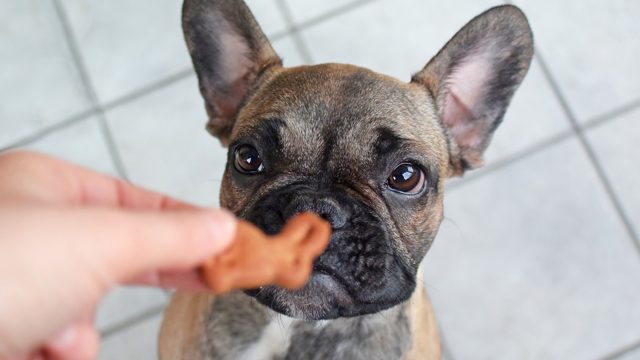
Exercise
Regular physical activity is essential for burning calories and keeping your French Bulldog fit. Adequate exercise helps in managing weight and promoting overall well-being. Due to their brachycephalic (short-nosed) nature, French Bulldogs are prone to breathing difficulties, so it’s crucial to opt for low-impact activities. Daily walks, playtime, and interactive toys can provide the necessary exercise while keeping them engaged and happy. Aim for at least 30 minutes of moderate exercise each day to help maintain a healthy weight and prevent obesity.
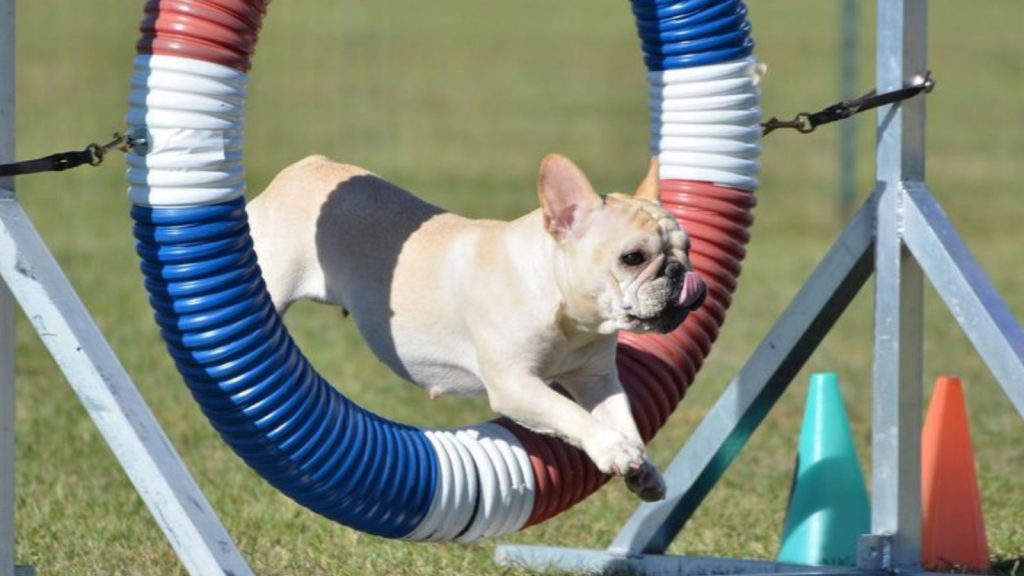
Additional Considerations
- Age: As French Bulldogs age, their metabolism slows down, which can affect their weight. Older dogs may require adjustments in their diet and exercise routine to prevent weight gain.
- Health Conditions: Certain health conditions, such as hypothyroidism, can influence weight. Regular veterinary check-ups are important to identify and manage any underlying health issues.
- Spaying/Neutering: These procedures can sometimes affect a dog’s metabolism, making weight management more challenging. Monitoring their weight and adjusting their diet and exercise accordingly is essential.
Understanding the French Bulldog average weight is essential for any owner. Proper weight management can prevent numerous health issues, ensuring that your beloved pet leads a long, healthy, and active life.

Why Knowing the Average Weight is Important?
Understanding the average French Bulldog weight is essential for several reasons, ranging from health maintenance to overall well-being. Let’s explore why this knowledge is crucial for any Frenchie owner.
Health Monitoring
Knowing the average weight provides a benchmark to assess whether your French Bulldog is within a healthy range. Regularly monitoring their weight helps in detecting any sudden changes that could indicate underlying health issues. For instance, unexplained weight gain might signal obesity, while weight loss could point to digestive problems or other medical conditions. Early detection allows for timely intervention, ensuring your Frenchie stays healthy.
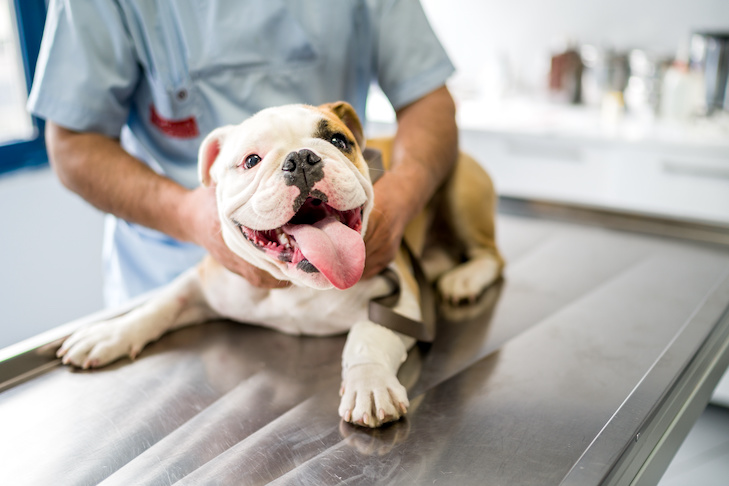
Diet and Nutrition Management
Understanding the average French Bulldog weight aids in planning their diet and nutrition. Overfeeding or underfeeding can lead to significant health problems. With a clear weight benchmark, you can tailor their food intake to meet their specific needs, ensuring they receive the right amount of calories and nutrients. This helps in maintaining optimal body condition and preventing obesity, which is common in French Bulldogs.

Exercise and Activity Levels
A French Bulldog’s weight influences the type and amount of exercise they require. Knowing the average weight helps in designing an appropriate exercise routine. Overweight dogs might need more physical activity, while underweight or older dogs may require gentler, low-impact exercises to avoid strain. Ensuring the right balance of exercise is crucial for maintaining their fitness and preventing health issues related to inactivity.
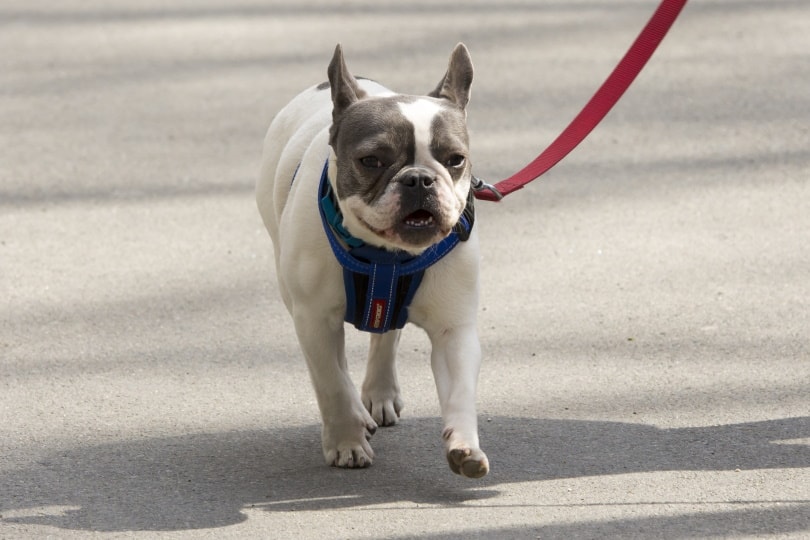
Lifespan and Quality of Life
Maintaining your French Bulldog at a healthy weight can significantly impact their lifespan and quality of life. Obesity can lead to numerous health problems, including joint issues, heart disease, and diabetes, all of which can shorten their lifespan and reduce their quality of life. By understanding and maintaining their average weight, you can enhance their longevity and ensure they lead an active, happy life.
Personalized Veterinary Care
Having a clear understanding of the average weight allows for more personalized veterinary care. Vets can provide more accurate health assessments and tailored advice on diet, exercise, and preventive care. This personalized approach ensures your French Bulldog receives the best possible care, promoting their overall health and well-being.
Cost Efficiency
Preventing weight-related health issues through proper weight management can also be cost-efficient. Treating obesity-related conditions can be expensive. By keeping your French Bulldog within a healthy weight range, you can avoid these costs and ensure they remain healthy without frequent medical interventions.
Tips for Maintaining an average French Bulldog weight
Tips for Managing Diet and Nutrition
A balanced diet is essential for maintaining the average French Bulldog weight. Opt for high-quality dog food that provides adequate protein, vitamins, and minerals to support their overall health. To prevent weight gain, avoid overfeeding and limit treats. So, how much should a French Bulldog eat? Typically, French Bulldogs should consume about 25 to 30 calories per pound of body weight per day. This usually translates to about 1 to 1.5 cups of high-quality kibble daily, divided into two meals. However, individual needs can vary based on age, activity level, and metabolism. Consulting your vet for personalized dietary advice can help ensure your Frenchie gets the right amount of food to maintain a healthy weight.
Recommended Exercise Routines for French Bulldogs
Ensuring adequate exercise is crucial for maintaining the health of your French Bulldog. They require at least 30 minutes of moderate exercise daily, which can include walks, playtime, and interactive toys. It’s important to choose low-impact activities due to their brachycephalic (short-nosed) nature, as this can help prevent breathing difficulties. Understanding how much exercise does a French Bulldog need helps maintain their fitness and promotes a healthy lifestyle throughout their lifespan.
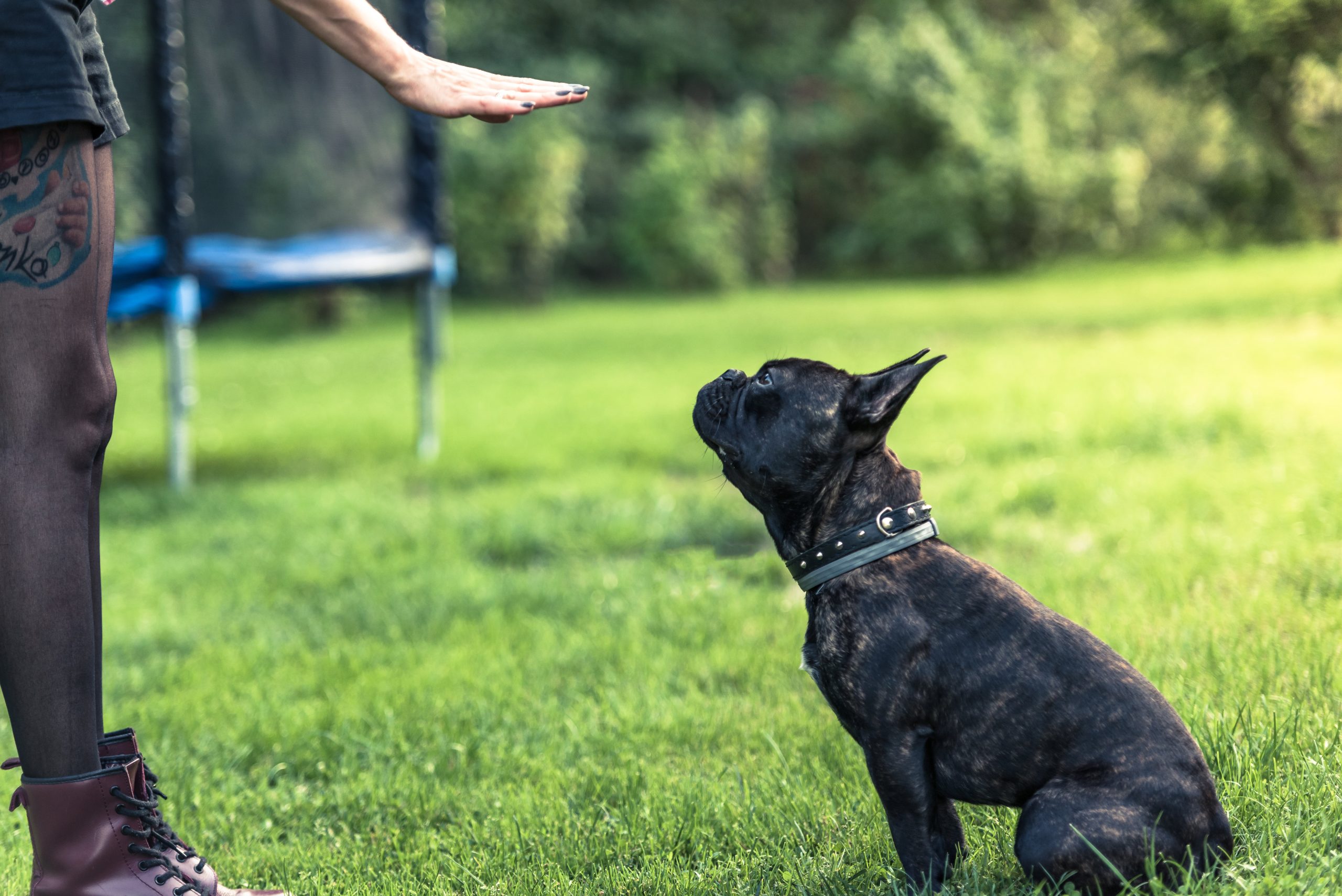
Signs of Overweight or Underweight French Bulldogs
Identifying Signs of Obesity in French Bulldogs
Obesity is a common issue in French Bulldogs that can lead to serious health problems. Signs include:
- Difficulty breathing
- Reduced mobility
- Excessive panting
- Visible fat deposits
If you notice these signs, consult your vet for a weight management plan.
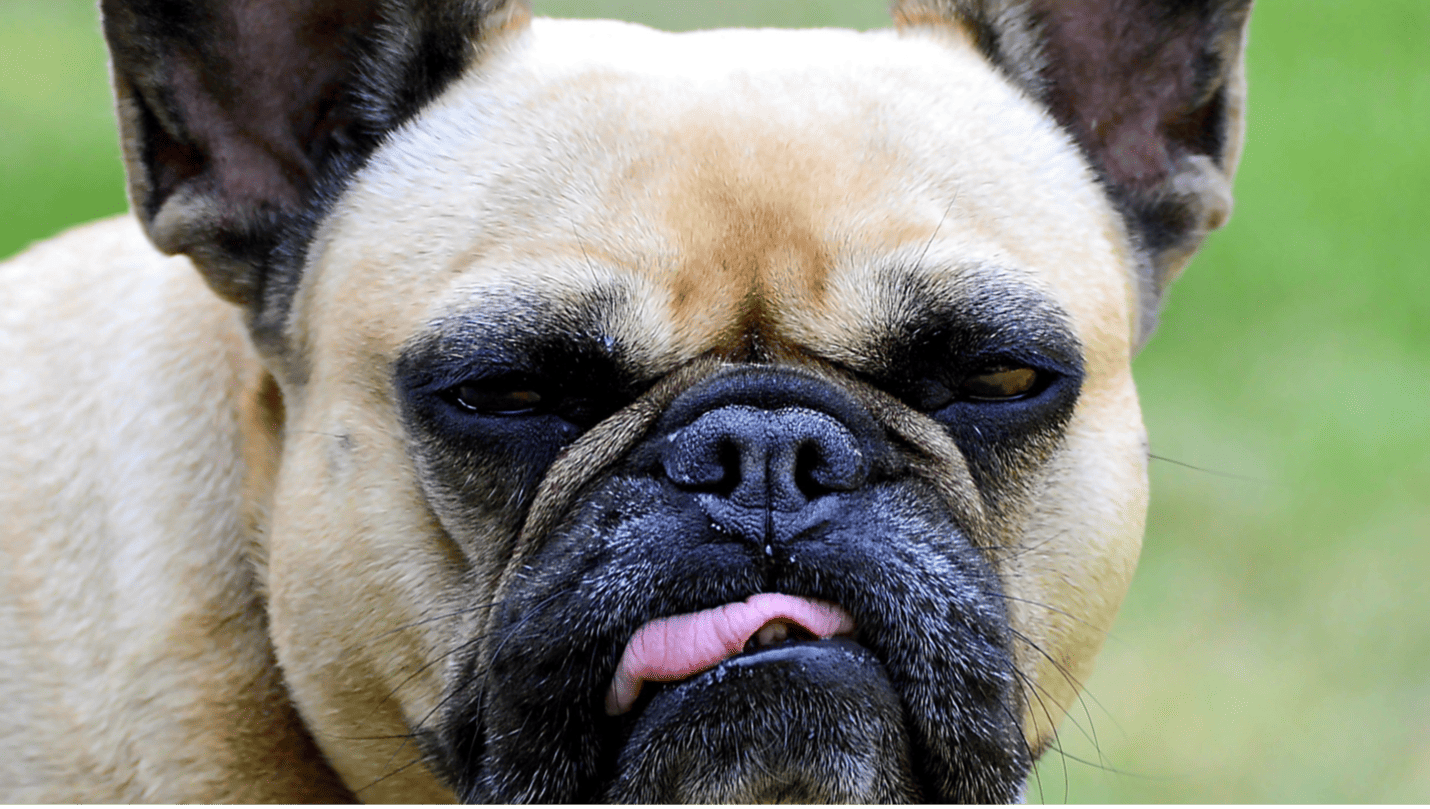
Identifying Signs of Being Underweight
Being underweight can also pose health risks. Signs to watch for include:
- Visible ribs and spine
- Lack of energy
- Dull coat
- Decreased muscle mass
If your Frenchie exhibits these symptoms, seek veterinary advice to address potential underlying issues.

Health Risks Associated with Being Overweight or Underweight
Maintaining an ideal weight is crucial for preventing health problems. Overweight French Bulldogs are at risk of joint issues, diabetes, and heart disease. Conversely, underweight Frenchies may suffer from malnutrition, weakened immune systems, and developmental issues.
Solutions for Overweight and Underweight Bulldogs
Solutions for Overweight French Bulldogs
When your French Bulldog is overweight, implementing effective weight loss measures is crucial. Based on my years of experience and scientific research, here are some effective solutions:
Adjusting Diet
Adjusting the diet is the first and most important step in weight loss for overweight French Bulldogs. A study from Cornell University shows that reducing calorie intake by 20% can lead to significant weight loss in obese dogs. I recommend switching to lower-calorie food, increasing protein and fiber, and strictly controlling portion sizes.
Increasing Exercise
Increasing exercise is an effective way to burn excess calories. However, with French Bulldogs, caution is needed to avoid overexertion. Start with gentle exercises and gradually increase intensity over time. Research from the Journal of American Veterinary Medicine indicates that increasing daily walk time by 15 minutes can help reduce body weight by 5% within 3 months.
Consulting with a Veterinarian
In some cases, being overweight can be a sign of underlying health issues. Therefore, I always encourage owners to consult with a veterinarian. They can propose a suitable weight loss plan and check for obesity-related health issues such as thyroid disease or other endocrine problems.
Solutions for Underweight French Bulldogs
Underweight French Bulldogs are just as concerning as overweight ones. Based on my years of experience and scientific research, here are some effective solutions:
Improving Diet
Improving the diet is the first and most important step to help French Bulldogs gain weight. Research from Ohio State University shows that increasing calorie and protein intake can help dogs gain weight healthily. I recommend choosing nutrient-rich food with high protein and fat content. Also, divide meals into several smaller portions throughout the day to increase food consumption.
General Health Check
Being underweight can be a sign of underlying health issues. Therefore, I always encourage owners to take their dogs to a veterinarian for a general health check. They can detect and treat conditions such as parasites, digestive diseases, or endocrine issues that may cause underweight conditions.
Nutritional Supplements as Advised by Experts
In some cases, nutritional supplements can help dogs gain weight quickly and healthily. However, this should be done under the guidance of a veterinarian or nutrition expert. They can recommend appropriate supplements or vitamins suitable for the dog’s specific condition.

Common Weight-Related Health Issues in French Bulldogs
French Bulldogs are prone to a variety of weight-related health issues due to their compact and muscular build. Understanding these issues and the importance of maintaining the French Bulldog average weight can significantly enhance your pet’s quality of life. Here are some common weight-related health problems that French Bulldogs may encounter:
Hip Dysplasia
Hip dysplasia is a genetic condition where the hip joint doesn’t fit properly into the hip socket. Overweight French Bulldogs are at a higher risk of developing hip dysplasia because the excess weight puts additional stress on the hip joints. This can lead to pain, mobility issues, and eventually arthritis if not managed properly.
Arthritis
Arthritis is a common condition in overweight French Bulldogs, characterized by inflammation and pain in the joints. Carrying extra weight puts undue pressure on the joints, exacerbating the wear and tear that leads to arthritis. Maintaining a healthy weight through proper diet and regular exercise can help alleviate the symptoms and slow the progression of this condition.
Respiratory Problems
French Bulldogs are a brachycephalic breed, meaning they have short, flat faces. This facial structure makes them prone to respiratory issues, such as Brachycephalic Obstructive Airway Syndrome (BOAS). Excess weight can worsen these respiratory problems by adding extra pressure on the chest and lungs, making it harder for your Frenchie to breathe. Keeping your dog within the average weight for French Bulldogs can help reduce the severity of these issues and improve their overall breathing capacity.
Heart Disease
Obesity in French Bulldogs can lead to heart disease, as the heart has to work harder to pump blood through the body. This increased workload can result in high blood pressure, heart failure, and other cardiovascular problems. Maintaining a healthy weight is crucial to ensuring that your French Bulldog’s heart remains strong and functions efficiently.
Diabetes
Like humans, dogs can also develop diabetes, and obesity is a significant risk factor. Overweight French Bulldogs are more likely to develop insulin resistance, leading to diabetes. This condition requires careful management through diet, exercise, and possibly medication, making weight control an essential aspect of preventing diabetes in French Bulldogs.
Intervertebral Disc Disease (IVDD)
French Bulldogs are also susceptible to Intervertebral Disc Disease (IVDD), a condition where the cushioning discs between the vertebrae of the spinal column bulge or burst into the spinal cord space. Excess weight can increase the risk of IVDD by putting additional stress on the spine. Maintaining an appropriate weight for your Frenchie can help minimize the risk of this painful condition.

FAQs About French Bulldog Weight
Is There a Correlation Between an average French Bulldog weight and Its Activity Level?
Absolutely. Active Frenchies tend to maintain a healthier weight compared to those with sedentary lifestyles. Regular physical activity is crucial for weight management.
Are There Seasonal Variations in a French Bulldog’s Weight?
Yes, French Bulldogs might gain weight during colder months due to reduced outdoor activities. Adjust their diet and exercise routine accordingly to prevent weight fluctuations.
What Should I Do If My French Bulldog’s Weight Suddenly Changes?
Sudden weight changes can indicate health issues. Consult your vet immediately to identify and address any underlying problems.
When Do French Bulldogs Stop Growing?
The average French Bulldog typically stops growing and reaches their full adult weight between 12 to 14 months of age. By this time, the average French Bulldog weight stabilizes within the following ranges:
- Males: 20 to 28 pounds
- Females: 17 to 26 pounds
Conclusion
Monitoring and maintaining the average French Bulldog weight is crucial for their overall well-being and happiness. Understanding their ideal weight range, growth stages, and specific dietary requirements ensures they can enjoy a long and healthy life. Regular consultations with your veterinarian, combined with a balanced diet and consistent exercise regimen, are key to achieving this goal. By proactively managing their weight and health, you’re ensuring that your Frenchie thrives and reciprocates with boundless affection.
Have questions or experiences to share? We’d love to hear from you in the comments!

At bestfoodforfrenchbulldog.net, Frenchie Feast Co is dedicated to providing the best information and advice on nutrition and food for French Bulldogs. We understand that every dog has unique nutritional needs, especially breeds like the French Bulldog. Therefore, we continually research and seek out optimal nutritional solutions.
CEO Lincoln Martin is not only the founder of BestDogFoodForDachshunds.net but also a proud Dachshund parent. With a deep understanding of the unique dietary needs of Dachshunds, Lincoln Martin is committed to helping fellow dog owners make informed decisions about their pets’ nutrition.
Driven by a love for animals and a desire to share valuable insights, our team works tirelessly to research and curate the most reliable and up-to-date information on dog food, health, and care. From reviewing the latest products to offering practical tips and advice, we strive to be your trusted source for everything Dachshund-related.
Whether you’re a new Dachshund owner or a seasoned enthusiast, you can trust the expertise and dedication of the team at BestDogFoodForDachshunds.net to support you on your journey of providing the best care for your furry friend.


